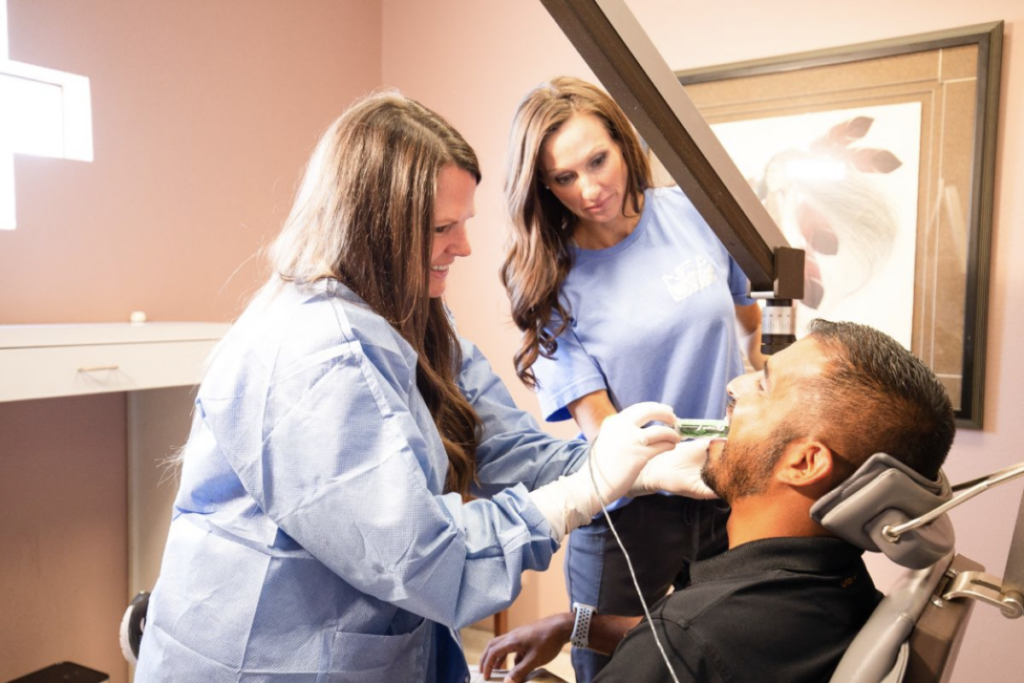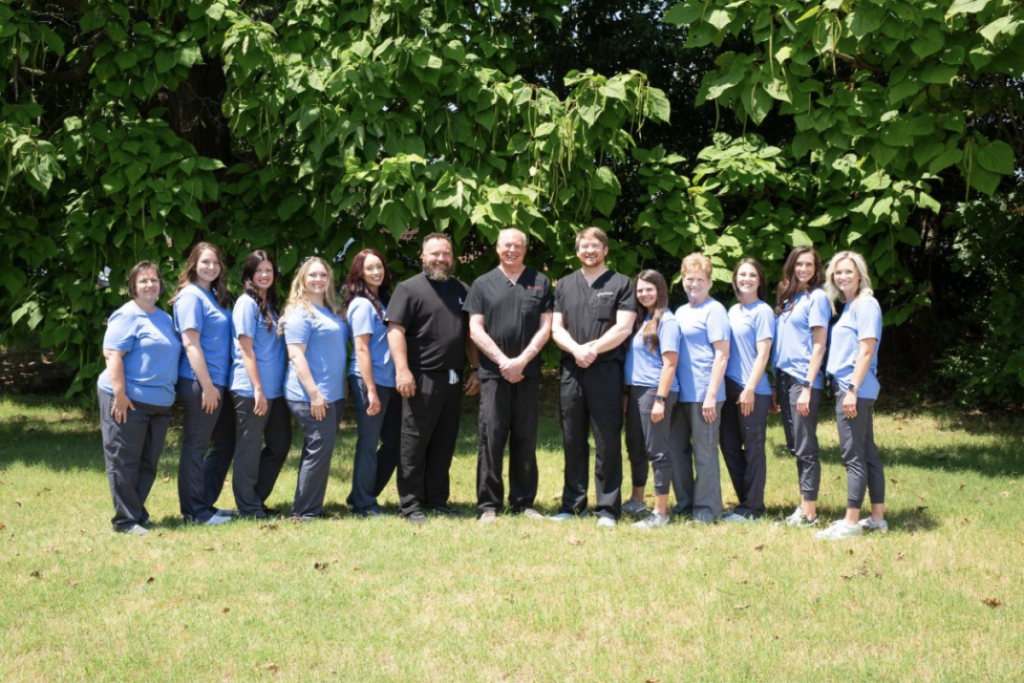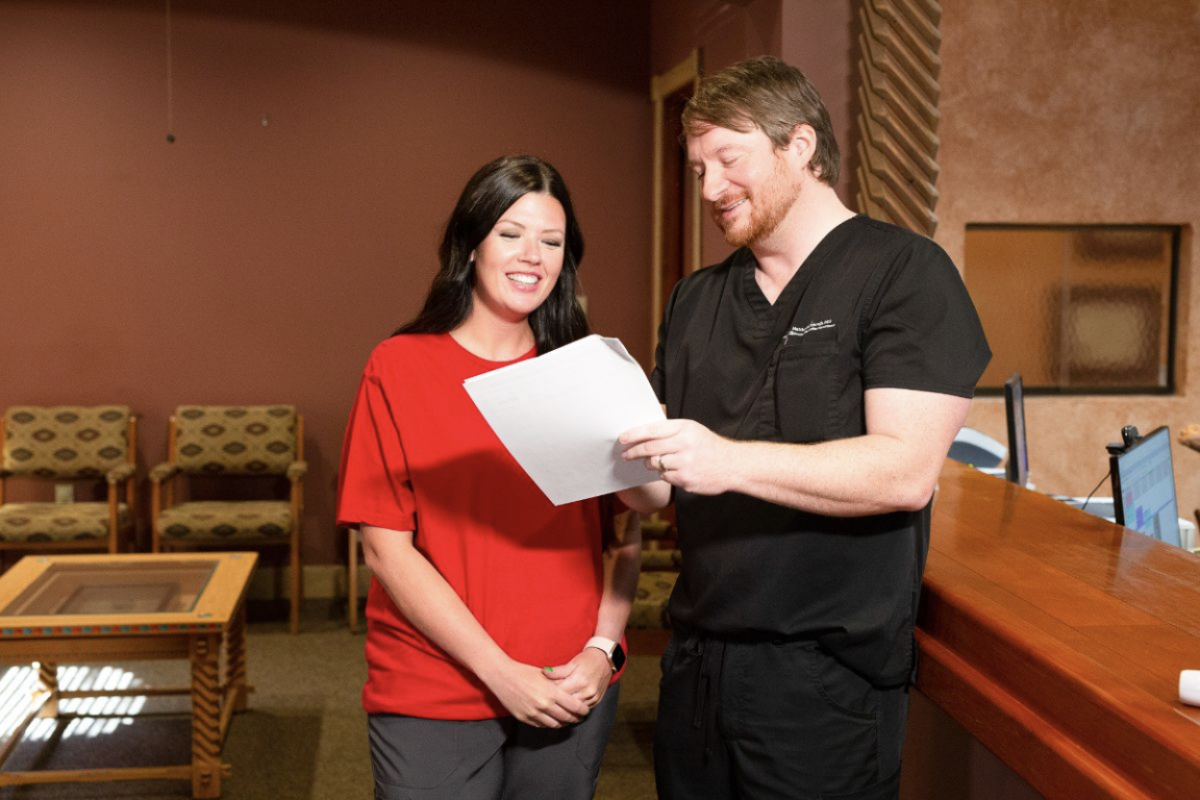For a long time, there weren’t many treatments available if you found yourself missing or partially missing one or more teeth. The only options were full or partial dentures and bridges. Lucky for our patients, dentistry has come a long way in a short amount of time! For almost fifty years now, dental implants have offered patients a safe, effective, and lasting way to improve the appearance and function of their smile. If you’re missing teeth, you already know that it can affect your cosmetic appearance, limit what you’re able to eat, and even cause problems with your speech. Keep reading below to learn more about how dental implants from Northeast Arkansas Center for Oral & Maxilliofacial Surgery can restore your smile!
What are dental implants?
Modern dental implants are generally made of titanium, a material that the body naturally accepts. We can replace a missing tooth by placing a small metallic screw directly into the empty socket. In time, the jawbone and gum tissue around this area will fuse with the implant itself. This forms an artificial root, which will hold the implant in place for many years.
Once the implant area has fully healed, a small connector called an abutment will be attached to the implant to hold the new tooth, also known as a crown. These days, crowns have the same color and shape as your teeth, so they seamlessly blend in with your natural smile. If multiple teeth are missing, we can fix a bridge or denture onto the implant instead of a crown.
Since the implant fuses to your bone, dental implant restorations feel and function more like natural teeth. Many people also find the fit more comfortable and secure than conventional substitutes.
How does the dental implant process work?
The dental implant procedure will typically be conducted in three separate phases. This can take six to nine months to complete. However, it must be carried out over a more extended time to give the body adequate time to accept the implant before concluding the treatment process.
Phase One—Planning
Once you decide on dental implant treatment with our practice, one of our dentists will examine the bone structure around the missing tooth using x-rays or a 3D scan. The proper bone height, width, and density are necessary to properly place an implant in the best location for optimal results. In the case of a partially missing tooth, the remaining tooth may be removed at the time of the procedure. If the bone density is low, bone grafting may be necessary before we can place the implant. If this is required, patients will usually need to wait three months for the area to heal before moving on to the second phase. We can initiate Phase Two immediately if no bone grafting is required.
Phase 2—Placement
During this phase of the treatment process, the titanium implant will be inserted into the predetermined location. This procedure will generally take about 1-2 hours. We will once again need to allow 3-4 months for healing time before moving on to Phase 3. You’ll be scheduled for regular check-ups with one of our dentists throughout this healing period.
Phase 3—Restoration
The final phase is implant restoration. Your doctor will place a natural-looking dental crown on top of the abutment or attach a fixed bridge to the implant posts. If you need a complete arch replacement or a denture, the entire teeth apparatus will be attached to the implant posts. Whatever your specific situation, the implants will restore full functionality and significantly improve the overall appearance of your smile!

Are dental implants better than dentures?
While dentures can be an effective solution for patients with missing teeth, dental implants are a significant advance in the field of restorative dentistry and offer many distinct advantages. Traditional dentures require pastes or messy adhesives to stay in place, whereas we fix dental implants in place by enabling them to fuse to the jaw bone. As a result, dental implants also eliminate the discomfort, irritation, or “slippage” along the gums that many patients with ill-fitting dentures experience. These procedures are completely customized to each patient’s needs, and the implants themselves are designed to provide results that look, feel, and work like natural teeth.
How long is the recovery process with dental implants?
After the dental implant procedure, you can expect some slight discomfort while the area heals, although most patients say the procedure is much easier than they thought it would be! We’ll provide you with gauze packs to bite down on, which helps control the initial bleeding. Ice packs applied to the outside of your jaw can also reduce any swelling. You may want to stick to liquid or soft foods for the first few days.
How do you care for your dental implants?
You’ll need to care for your dental implants as you would your natural teeth. We recommend that all our patients brush twice a day for two minutes each time and floss every night before bed. You should also schedule regular dental check-ups, preferably every six months. Maintaining a good dental hygiene routine will help ensure your implants last a lifetime!

Give your smile the best at Northeast Arkansas Center for Oral and Maxillofacial Surgery
Our practice uses the latest technology to give the best results to everyone who visits our office. With more than forty years of experience helping patients achieve a healthier mouth, you can trust that you’ll be in the best hands possible with our team. To learn more about our services, get in touch today and let’s get started!
